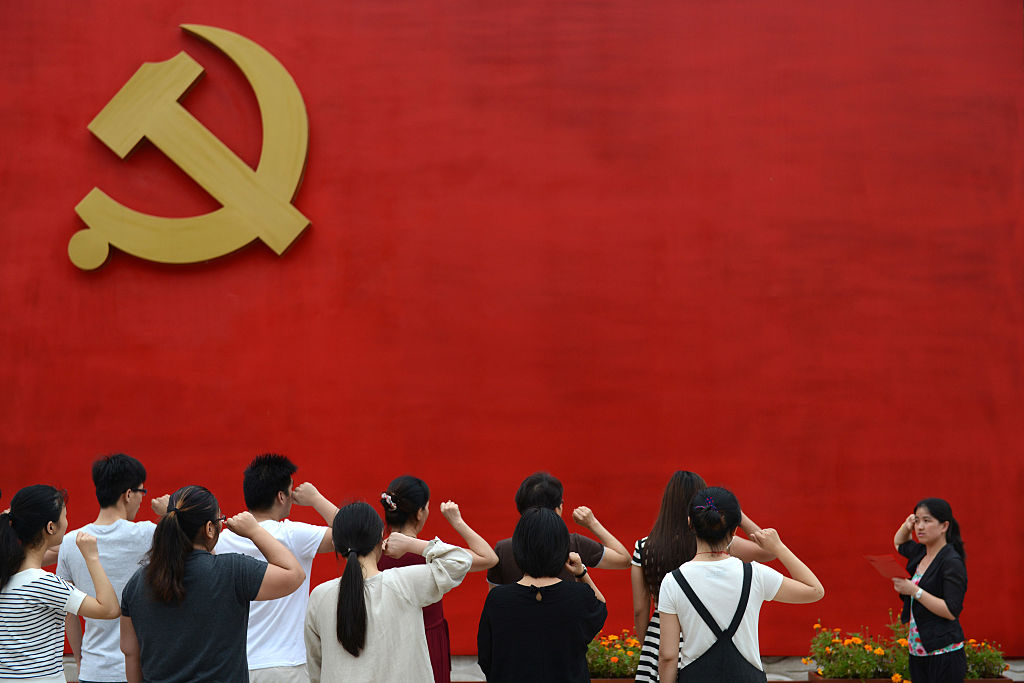Chinese universities and state-owned enterprises are establishing party branches abroad to boost the loyalty of overseas Party members.
Perhaps unsurprisingly, political differences with other countries are proving to be major challenges for them to carry out their activities.
The case at University of California, Davis
State media Global Times recently published an account of the obstacles faced by CCP members in building party branches on foreign soil, and how some of the them are adapting to the political environment in different countries.
The article used a recent incident reported in South China Morning Post (SCMP) as an example to illustrate how Chinese academics and students are promoting campus communism.
Mu Xingsen, a Chinese visiting scholar at the University of California, Davis, had set up the branch along with 6 other visiting scholars from China on Nov. 4 — an act that was praised by Mu's parent university in an online report as "setting an example for overseas party members".
The school report, since removed from the website, said the branch was set up to equip members with the party’s latest theories, affirm their communist beliefs and help them guard against the “corrosion” of Western ideas.
However, Mu shut it down after learning that their organization was potentially illegal under US law.
US Foreign Agents Registration Act (FARA) requires all individuals and groups acting under the direction or control of a foreign government or political party to register with the Department of Justice in advance and to report their activities and finances on a regular basis.
[related_story]
Some success at campus communism
In theory, according to the CCP constitution, as long as there are three Party members, a primary Party organization should be formed.
Apart from studying Party theory, overseas Party cells are also responsible for promoting Party and government policies.
The rising number of overseas Party branches is a new phenomenon, showing the growing influence of the CCP and China, as noted by a Chongqing party school professor in Global Times.
There have been cases of success at overseas campus communism and the Global Times report cited two of them:
- National University of Defense Technology: In 2012, 8 overseas Party branches were established for over 200 Chinese exchange students and visiting scholars, all CCP members, in over 20 foreign countries. Party members at these overseas branches are required to hand in a report about their thoughts every three months, participate in a group Party activity and hold a Party meeting once every half-year, then report their activities to the university's politics department.
- The School of European and Latin American Studies at Shanghai International Studies University (SISU): They started setting up overseas Party branches for students on overseas exchange in 2009 and now has organizations in countries including Spain, Portugal, Chile, Greece, Mexico, Italy and the Netherlands.
Innovative Methods
The growing presence of Chinese companies based in foreign countries through the Belt and Road initiative has also brought about a sense of urgency in building up party branches to provide "political guidance".
Global Times quoted Zheng Xuexuan, Vice President of the China State Construction Engineering Corporation, the largest construction company in China by revenue with projects worldwide, saying that Party building should be carried out according to each country's laws.
He also said that in countries where the political environment places constraints on Party activities, Party organizations should adopt innovative methods, such as pairing up Party cadres with Party members, old Party member with young, to impart Party ideology.
Some Chinese companies are now using new media to make Party activities accessible to their overseas members. For example, the Tianjin Julong Group, a palm oil producer with projects in Belt and Road countries such as Indonesia, carried out Party activities such as Party knowledge quizzes and study groups through WeChat and QQ groups.
Growing concerns
There are growing concerns about China's political assertiveness and influence at home and abroad.
The CCP has been trying to increase its role in all aspects of life in China, including trying to make inroads into foreign-funded companies.
The annual report of the US China Economic and Security Review Commission to the US Congress said last week that the staff of Chinese state media outlets in the US should be required to register as foreign agents under an amended FARA because their employers were involved in spying and propaganda.
Top image via Getty Images.
Here are some totally unrelated but equally interesting stories:
Mums share their experience in helping their kids go cashless
This guide to interacting with persons with disabilities will make you a better person
If you like what you read, follow us on Facebook, Instagram, Twitter and Telegram to get the latest updates.
